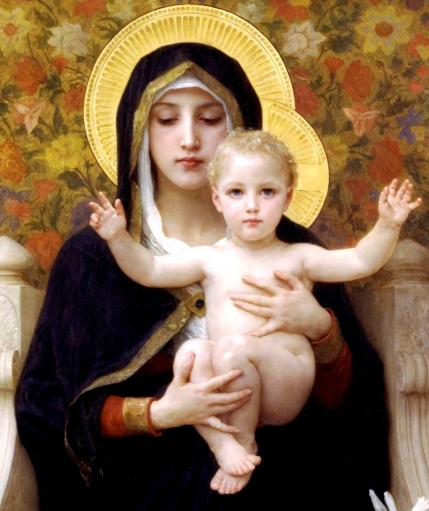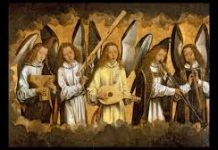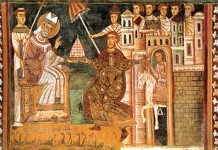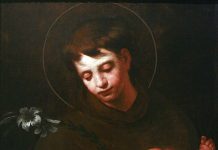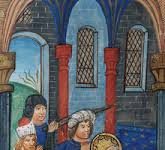In these latter days of Advent, our focus, liturgically and devotionally, is on Our Lady, expectant, preparing to give birth to the One who would redeem the world. And we too wait, with joy, with her.
God often does the unexpected – a God of surprises, as one wise woman said to me years ago, when I could have used a surprise or two. We might even describe Him as a master of irony, of playing against expectation. To be born of a virgin, and one as yet unmarried? But in retrospect, such was fitting, even perfect. A consecrated, untouched womb for the Holy One; a chosen shrine, to house the Architect divine, as Venantius Fortunatus aptly put it.
Mary’s perpetual virginity was defended vigorously by Saint Jerome against the proto-heretic Jovinianus, who claimed that virginity was no better than marriage, and that Our Lord’s birth was a ‘natural’ one, with all that entailed. Au contraire, the Church declared at the Second Council of Constantinople in 553, that Mary was aieparthenos, a virgin before, during and after the birth of her Son.
What is more, our Tradition has it that she chose this state from the earliest age. We may gather this from the mysterious and puzzling reply she gave to the Angel, when it was announced she would be the mother of the promised Messiah:
Πῶς ἔσται τοῦτο, ἐπεὶ ἄνδρα οὐ γινώσκω
Which is often translated as ‘How can this be, since I have no husband’.
Of course, Mary did have a husband, as she was betrothed to Joseph. Every Jewish maiden longed to be chosen as the mother of the promised redeemer, a new Moses or David, who would lead their people out of bondage and slavery to a new ‘promised land’. The expected reply, if Mary were intending to live a ‘normal’, conjugal married life, would have been ‘Alleluia! Praise be to God!’
Instead, what she actually said was ‘How can this be, since I do not know man?’, which in context implies that, even with her impending full betrothal to Joseph, she intended never to ‘know man’. Much as someone who has sworn off alcohol, when given an expensive bottle of fine single malt Scotch for Christmas, might say, ‘Thank you – But how can I use this, since I don’t drink?’
In other words, God chose the very woman to be the mother of His Messiah, who, out of the depths of her love, had sacrificed to Him any hope of ever being the mother of the Messiah. Perhaps she considered herself too insignificant, too unworthy, too…humble.
But, as Our Lady herself later sang, God had regard for the humility of His handmaid, and has cast down the mighty from their thrones, lifting up the lowly.
In today’s reading, we hear of Hanna, who had earlier prayed, begged, God for a child. Soon after Samuel was born, in thanksgiving, she ‘lent him to the Lord, for as long as he lives’. Samuel paved the way for David, of whose lineage Christ was born.
Mary did even more than her ancestor Hanna, giving up any hope of children, grandchildren, or descendants. But she is now the Mother of all, of untold billions of souls, guiding them to eternal life, if they but heed her voice, calling them to heed her Son.
Venite, adoremus.

